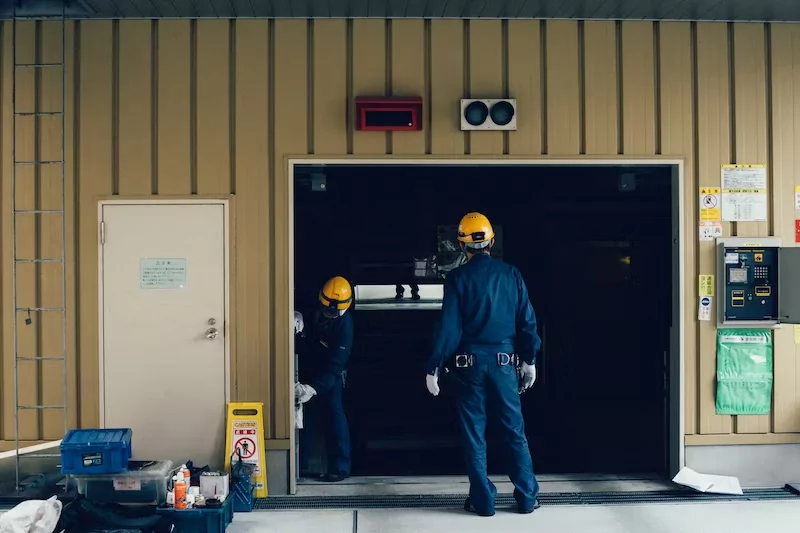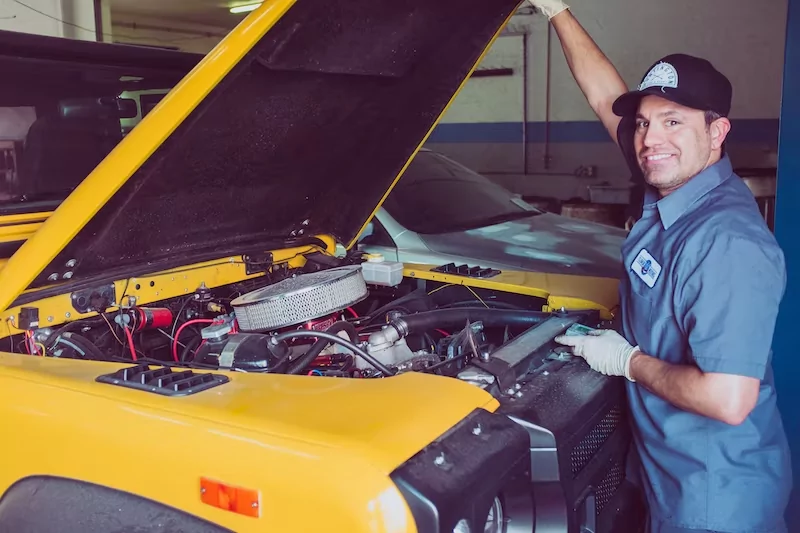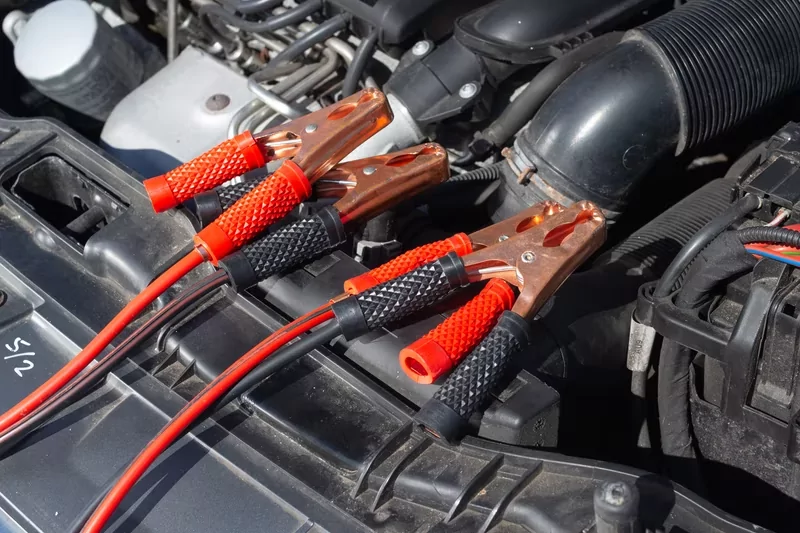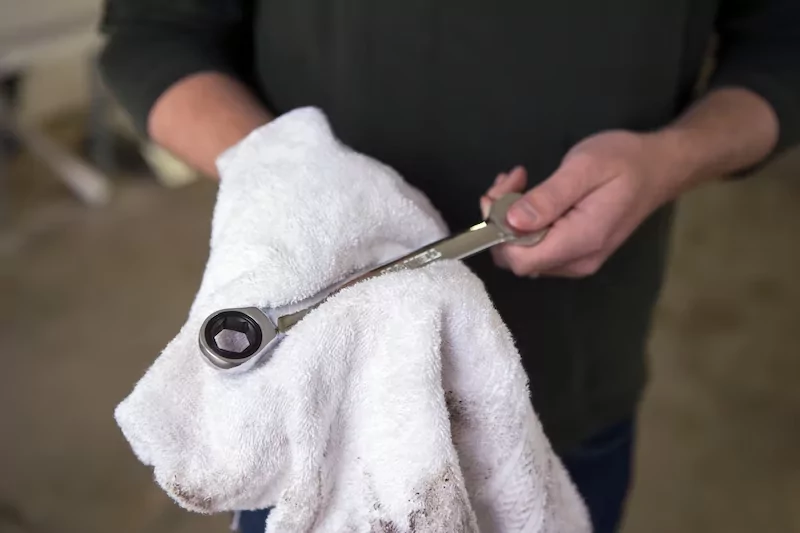
You might want to open your own auto repair business, but have no idea where to start when it comes to obtaining the necessary permits.
The process of applying for a licence and navigating legal intricacies can be tricky. Permits will almost always vary depending on your state and local laws, and there are a lot of boxes you need to check before you can get started.
Business Licences
Do I need a licence to run an auto repair shop?
Most likely, yes – in every state except Victoria, you will need a motor vehicle repairer’s licence to operate your business. Holding a licence ensures you are certified to run a mechanic business and that you are abiding by all state and local guidelines.
You’ll need to have your licence number and certificate of authorised premises clearly posted in your mechanic shop to be legally operational.
How do I obtain a licence?
Business licences require an application and processing fee. They are valid for three years, typically only in the state in which they were obtained, and must be renewed 28 days before expiring. Licensing requirements vary by state or territory, but you will usually have to fulfil several conditions before applying, including proof of certification, premise requirements, and tax documentation.
You can visit the Australian Business Licence and Information Service (ABLIS) and answer a series of questions about your business to find out what licences are required.
Permits required to be a mechanic by country.
Australia: Mechanics in Australia must have a formal trade qualification, such as a Certificate III in Light Vehicle Mechanical Technology or equivalent. Some states require a Motor Vehicle Repairer License, which is necessary for conducting repairs legally. Business owners need to register their business with an Australian Business Number (ABN) and acquire public liability insurance. Certain states, like New South Wales, have specific local permits and environmental compliance requirements, especially for handling hazardous waste.
New Zealand: In New Zealand, a mechanic typically needs an automotive engineering qualification, and if performing specific services, like issuing Warrant of Fitness (WOF) certificates, they must be certified by the New Zealand Transport Agency (NZTA). Business registration, including setting up a New Zealand Business Number (NZBN), is essential. Health and safety regulations also require mechanics to ensure compliance with local environmental standards for waste management.
USA: Licensing in the United States varies significantly by state. Mechanics often need Automotive Service Excellence (ASE) certification, which validates their skills and qualifications. Some states require specific licences for services like emissions testing or inspections. Additionally, mechanics must comply with state and local business registration, acquire appropriate insurance, and adhere to environmental regulations concerning hazardous waste disposal.
UK: In the UK, a formal qualification, such as an NVQ Level 2 or 3 in Vehicle Maintenance and Repair, is generally required to be a mechanic. While there isn’t a universal mechanic licence, those offering MOT testing services must be certified. Business owners need to register their company, get liability insurance, and follow health and safety regulations. Environmental permits may also be needed, especially when handling chemicals and waste oils.
South Africa: Mechanics need a recognized trade qualification in automotive repair. While there isn’t a central mechanic licence, businesses must register with the Companies and Intellectual Property Commission (CIPC) and obtain permits if they plan to handle or store hazardous materials. Registration with the Motor Industry Ombudsman of South Africa (MIOSA) is also recommended to build consumer trust. Compliance with local health and safety laws is mandatory.
Canada: Mechanics usually need to complete an apprenticeship program and obtain Red Seal Certification, which is recognized across most provinces. Licensing varies by province, with some requiring mechanics to have specific trade certifications. Businesses need to be registered, and it’s essential to have commercial insurance. Mechanic shops must follow provincial guidelines on environmental compliance, including the handling and disposal of hazardous materials.
These permit and licence requirements help maintain industry standards, ensuring mechanics operate legally and safely in their regions.
What type of business should I register as?
There are three basic types of business you can register your repair shop as:
- Sole trader: You are the sole member running the business. This structure requires you to apply for an Australian Business Number (ABN) used for banking and vending purposes.

- Partnership: This business structure shares ownership between multiple people, with control and responsibility divided equally. You will need a written legal agreement outlining the contributions of each partner.
- Proprietary company: A proprietary company is a legal entity separate from its owner(s), and provides limited liability to shareholders. You will need to choose an official company name, and you can register your company online through the Business Registration Service (BRS).
Required Employee Certifications
Do I need a specific certification to run an auto repair business?
Yes – you and any other mechanics you employ will need to be officially certified in the classes of repair work that you offer at your shop. These licences both allow the holders to complete operations in their certified class unsupervised, and supervise unlicensed employees in training.
There’s a wide variety of repair classes in which you can become qualified, and the classifications may differ depending on your state. Think about what you are already certified in and what type of mechanics you would like to hire and train to determine what services you should fill out your application with.
You will likely also require additional certification if you want to perform safety or emissions inspections or examine second-hand vehicles.
How do I obtain a motor vehicle repairer’s certification?
You will need to undergo formal training and meet certain qualifications to obtain a certificate, typically through an apprenticeship with a Registered Training Organisation. You will also need to submit an application, proof of qualification and identity, and a processing fee to your state office concerning industry regulation and safety. Certifications can also be completed through assessments offered by a third-party testing organisation.
Repairer’s certificates typically last between one and five years before they need to be renewed.
Premises for Your Motor Vehicle Repair Business
What kind of premises do I need for an auto repair shop?
You will need to obtain valid premises and ensure they are authorised before applying for a business licence for your auto repair shop.
To obtain a business licence for your mechanic shop, you will also need to ensure that your premises meet the correct standards and have them authorised. This certifies that all the necessary zoning laws and building regulations have been met. Your registered premises can be fixed, a garage for example, or mobile, such as operating out of a van or truck.
Whether they are mobile or fixed, your premises must be suitable for your auto repair business and the classes of operations you are qualified for. This takes into account aspects such as equipment, location, and required space.

General compliance standards
Are there other standards that will apply to my auto repair shop?
There are often other regulations, typically enforced on the state level, that your mechanic shop must comply with before you have your application approved. The Motor Dealers and Repairers Act of New South Wales, for example, requires shop owners keep accurate records of sales and repairs.
Standards like these help ensure that repair businesses are not engaging in unfair or damaging business practices.
In addition, government agencies overseeing business regulation often perform random compliance checks to encourage businesses to maintain good standards. If your mechanic shop violates safety laws, you face the risk of being fined or having your licence revoked.
Environmental Compliance
It’s important when you’re thinking of starting a repair shop to ensure that it will not create harmful environmental effects on your community. Environmental practice laws will also vary slightly depending on your location. But your repair shop will likely have to meet requirements such as safe transportation and disposal of oil and other chemicals, batteries, and other potentially dangerous waste.
An example of suggested guidelines to follow can be found at the Department of Environment and Climate Change of New South Wales.
Health and Safety Compliance
The health and safety of your employees and customers is also a significant consideration. Most likely, you will need to obtain compensation insurance for your employees in case of an accident or other workplace injuries. This is particularly important for auto repair shops, as employees often deal with potentially dangerous equipment and materials.
You will also have to comply with the Australian Consumer Law, a national act that ensures fair and safe practices for your customers. This applies to issues such as fair contract terms, consumer guarantees, and accountability for the safety of products and services. You can access a comprehensive guide to ACL compliance at the Australian Consumer Law website.
Tax Registration for Auto Repair Shops
Another aspect of owning your own auto repair business that requires paperwork is tax-related documentation. Most likely, you will need to obtain the following documents for tax purposes:
- ABN registration: You will need to register your mechanic business with the Australian Taxation Office and obtain a unique eleven-digit number called an Australian Business Number. This will allow you to conduct the finances of your auto shop and claim applicable credits.
- Goods and Services Tax registration: You must register to pay taxes on the goods and services you provide if your gross annual turnover is greater than $75,000.
- Payroll tax registration: Registering for payroll taxes is necessary if you plan to hire other employees, as their wages will need to be taxed by the state.
- Fringe benefits tax registration: Registering for FBT allows you to pay taxes on certain employee benefits you may provide outside of wages. The employer typically claims an income deduction for the payment of these taxes.

Other Considerations
There are a few other things you should consider when opening an auto repair shop beyond the legal steps. While meeting these requirements will ensure you have the equipment and experience to run a shop, you will also need to think about aspects such as finances and marketing.
Financial Planning
Opening a repair shop can require a lot of overhead costs before you start making any profit. You will likely need a large garage space, overhead lifts, and other expensive tools. If it seems like a good option for you, you may want to look into filing for a small business loan to help you get started.
You may also want to look into purchasing business software, such as the programs offered by Workshop Software. This all-in-one software can simplify managing your accounts by integrating many aspects of business management.
Marketing Your Auto Repair Shop
You’ll also want to think about how to market your new mechanic shop. Who will be your target market, and what do you want your shop known for? You may want to consider hiring a graphic design artist to help you create a great ad.
You’ll also want to look into trademarking the name of your mechanic shop. This ensures that you own the name for the products and services you offer and have the right to profit from it. The name of your company cannot be a duplicate of any other company’s trademarked name, so consider this when deciding what to call your shop.
Lastly…
The regulations set down for auto repair businesses ultimately protect both the business owner and the consumer. Following the proper legal processes may seem like a hassle sometimes, but it’s a necessary first step on your road to being the owner of a successful repair shop.
References
Related Articles
How to Start a Mobile Mechanic Business
How Much Does a Mechanic Shop Make?
Get Started
Thinking about Workshop Software? – Start Your Free Trial Today.


